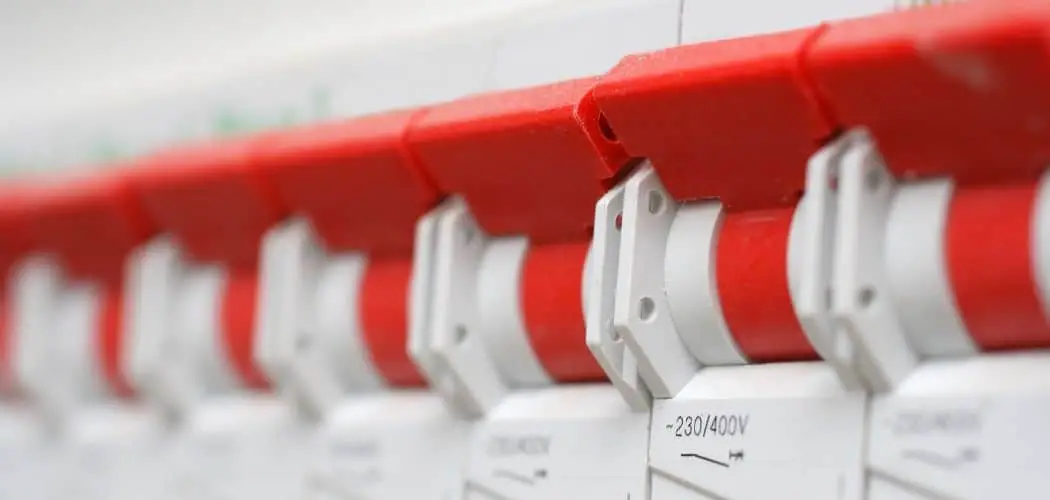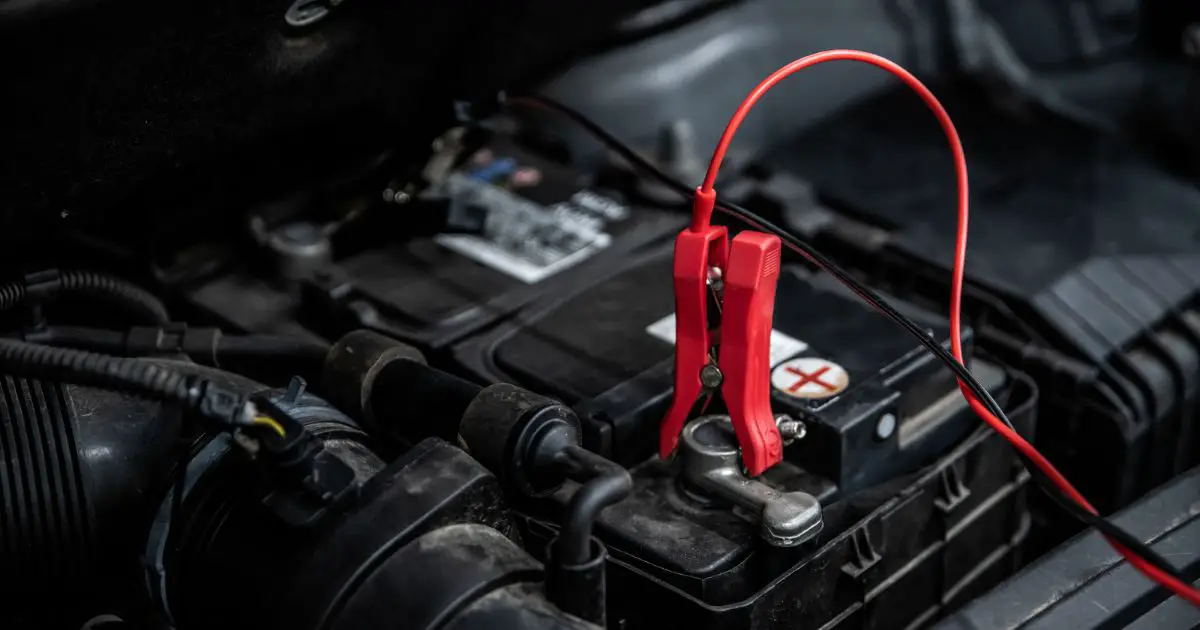Modern generators do come with a circuit breaker, which saves the generator from overload or short circuits. These circuit breakers trip as soon as there is any fault in the current passing through them.
If you face an extensive power outage, a generator would be a lifesaver for you. It provides backup electricity to your house. Generators are quite expensive tools. And just like all the other appliances, they too are prone to internal damages. These damages can be caused by the electricity it generates.
What Is the Role and Function of The Circuit Breaker in A Generator?
A Circuit breaker is a switching device. It is used to prevent appliances from electric surges and spikes.
For example, a Circuit breaker will trip if there is an overload. For example, if you are using too many appliances on a circuit breaker. The circuit-breaker will detect the heavy load passing through it and trip. It will completely close the current supply through it, unless you resolve the issue. That is removing some of the heavy load appliances in this scenario.
It is beneficial in a generator because an overload can decrease its lifespan. Using a circuit breaker will cut off the power supply if you add more than the required load.
Types of Circuit Breakers for Your Generators?
There are mainly three different types of circuit breakers for a generator. They are Standard Breakers, AFCI Breakers, and the GFCI breakers.
The Standard breakers are further divided into two different categories; double-pole breakers and single–pole breakers. They are the simplest type of breakers available in the common market. The single-pole breaker is used for low-electricity-consuming appliances. It can handle 15 to 20 amps. At the same time, the double-pole breaker is for larger appliances. And it is a heavy-duty breaker that can handle 15 to 200 amps of electric load.
The AFCI circuit breakers stop any accidental electrical flow in the wiring. It senses an electrical jump or an unusual path and then disconnects the wiring from power. It does this even before the wiring gets heated enough to catch flame. They are usually used with the standard circuit breakers to detect and respond to the heat build-up, even before an electric surge.
GFCI circuit breakers are known as ground fault circuit interrupter circuit breakers. They stop electrical power from overloading circuits. And if there’s a line fault or short circuit, they come into play then too. They are not for appliances that are used continuously.
How Can I Prevent Back Feed?
To know how we can prevent back-feeding, we must first understand what back-feeding is.
We connect our generator directly to a power outlet in our home instead of connecting it to the transfer switch. It creates a back-feed that will connect to the main supply of electricity and cause fire hazards. You shouldn’t connect a generator through a back-feed to save a line worker’s life. It can become a deadly situation for line workers that are working to fix any blackout.
To prevent back-feeding in a generator, there is one way. For this, first, remember that you should never connect any backup electricity directly into the supply lines of your home. If you are planning to connect your generator to your home grid. Then the best way would be to connect it through a transfer switch. Make sure that it cuts off the supply to the primary grid. If the electricity from the electric cooperative comes back on, it causes no damage to your grid.
GFCI Vs. Conventional Circuit Breaker:
The GFCI and standard circuit breakers are both for the same purpose, to alter the electric current supply. But each of these performs differently.
A GFCI breaker is mainly used at places where a device may come in contact with water. You’ll find a GFCI breaker at places such as swimming pools etc. They are perfect for kitchen and bathrooms where you’ll find yourself using electric appliances. If the devices come in contact with water, and there’s an electric surge in water. The GFCI will trip as soon as it detects a difference in current. If you find out that your GFCI trips, there’s a high chance that it saved you from an electric shock.
Meanwhile, a standard breaker controls the electric supply for an area or a specific groom of your house. Standard breakers reside in the main breaker box. This breaker box is a main/master breaker that can cut the entire house’s supply. A standard breaker trips whenever it detects any irregular surge. When it trips, the circuit breaker is preventing your wiring from damage.
Do Generators Have Circuit Breakers?
Circuit breakers are on almost every electric appliance. Generators have breakers that have protection rated at the same capacity or below it.
In generators, a circuit breaker is at different places according to their designs. They can be on either side of the generator. But most commonly, the circuit breaker is located on the control panel. They are near the power outlet. For generators, they protect them from overload.
If a generator comes with one or two outlets, the circuit breaker on the generator also acts as an outlet breaker. It acts as a breaker for either one or two breakers.
Auto-Throttle or Idle Control:
If a generator runs at 100% all the time. It will, over time, drain the lifespan of the generator. Generators have different configurations that enable them to use the engine at variable speeds. This is throttling.
This Auto-throttle or idle control reduces the engine speed if there is no load on a generator. In comparison, it will return to its rate if the load connects back on.
This feature in a generator reduces its fuel consumption as it adapts itself to the need. And it benefits the environment because of lower noise levels since the generator will get rest.
Do Generators Have Circuit Breakers?
Yes. Like most of the other electric machines, generators also have a circuit breaker. To protect the generator if it takes too much overload, the main circuit breaker helps disconnect it without damage to any appliance or the generator itself.
What Size Breaker Do I Need for A Portable Generator?
Where Is the Circuit Breaker on A Portable Generator?
There are different types of designs of generators where the circuit breaker is at different places. But in most, circuit breakers are near power outlets in pretty much all generators.
How Do You Break in A Portable Generator?
It is essential to break in a portable generator properly for it to run long term. Buying a generator can be expensive, and damaging it at the very start is not something you would want to do.
You should start by putting the oil in and running the generator for some time. Then let the generator rest and keep adding up the load each time you run it. Do it thrice, at least.
What Is Size Wire Required for A 50 Amp Breaker?
For a 50-amp breaker, you would need a wire gauge of size 6. Make sure you get the right size of wire gauge to avoid any problematic issue.
If the wire gauge is smaller, it will overheat and start melting, causing damage to appliances or the breaker or even being a fire hazard. However, using a larger wire gauge is not as dangerous.
Conclusion:
Generators appliances at home in hot or cold weather. But sometimes, they can cause damage to the internal wiring and chambers of the generators themselves. That‘s why generators come with circuit breakers.
Circuit breakers trip and cut off the electricity supply out of the generator. They trip when they sense some unusual flow in the current passing through them. Circuit breakers can save your whole house‘s wiring, too, if there‘s anything unusual.




